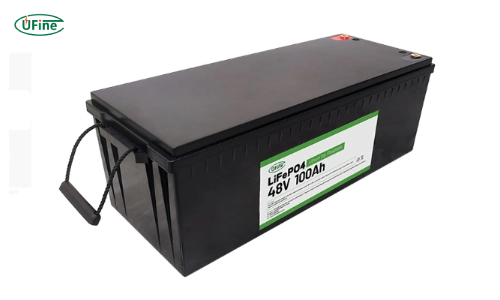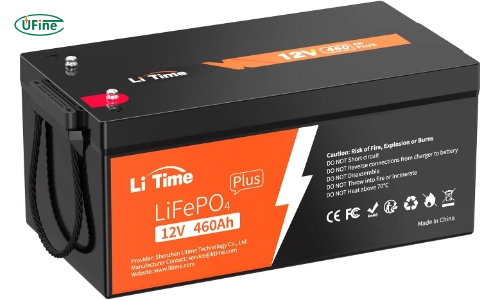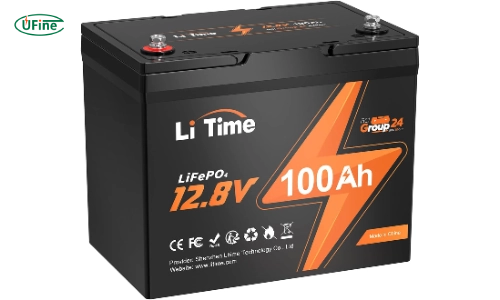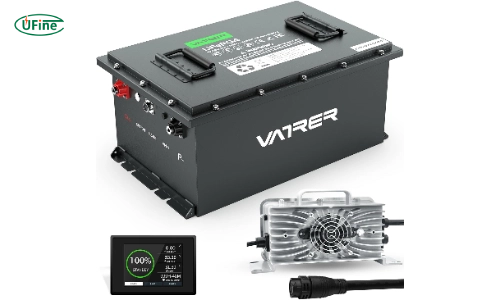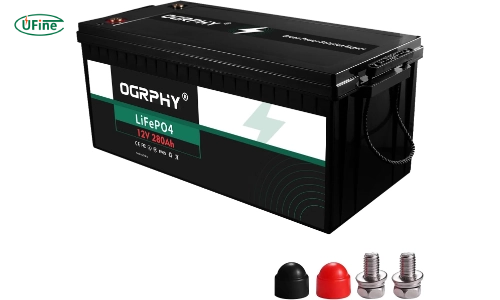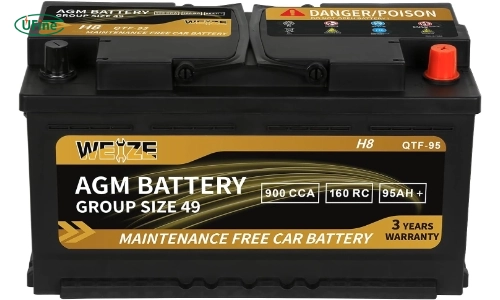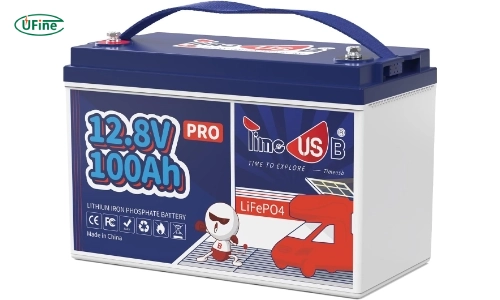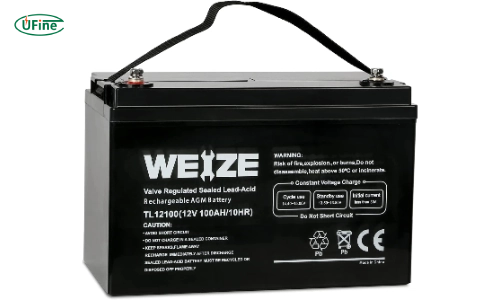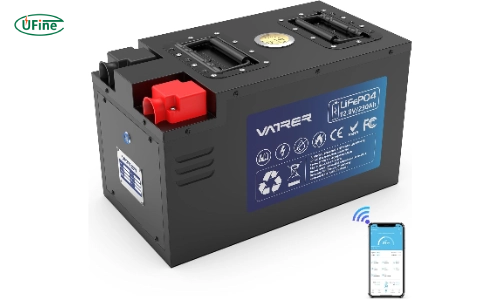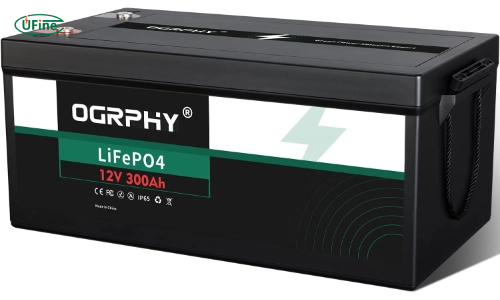Are you having difficulty finding the perfect semi-truck battery? With so many options available, a potential buyer’s search for a trusted and reliable battery is overwhelming. Ineffective battery performance might leave you stranded and thwarted, impacting your calendar and bottom line.
But don’t worry about it. In this article, we will discuss the top 10 recommendations for the best semi-truck batteries so that you can find the perfect match to fit your needs.
So let’s get started.
Part 1. What is a semi-truck?
Before getting into the best semi-truck battery recommendations, it is essential to know what a semi-truck is and what kind of battery it needs.
A semi-trailer, more popular as a tractor-trailer or an 18-wheeler, is an articulated container vehicle for towing one or more semi-trailers with a tractor unit. These compelling vehicles make up the backbone of any transport company, hauling loads ranging from consumer goods to industrial equipment hundreds and sometimes thousands of miles across the country.
Most semi-trucks, due to the size of their vehicle and the long hauling they are involved in, require huge and dependable batteries that can turn in consistently good performance.
Characteristics of Semi Truck Batteries:
- High Capacity: Semi-trucks need high-capacity batteries for systems like running an engine, lights, and maybe in-cab electronics.
- Durability: Their battery should survive the rugged conditions of constant applications against harsh environmental conditions like scorching and cold temperatures and road vibrations.
- Deep Cycle Capability: Semi-truck batteries will have to hold for long periods since they regularly turn on auxiliary systems without the vehicle engine running.
- Low-Maintenance and Maintenance-Free: Most truckers prefer low-maintenance and maintenance-free batteries for convenience and experience in large numbers.
Understanding these characteristics helps in choosing a battery that is big enough to serve the requirements regarding power needs for the utility truck. Moreover, it improves general efficiency and reliability.
Let us discuss the top 10 best semi-truck batteries you can purchase in 2024.
Part 2. Explore 10 of the best semi-truck battery options
Here are the 10 best semi-truck batteries you can choose from:
1. Ufine 48 V 100Ah LiFePO4 Battery
Specifications:
- Nominal Voltage: 48V
- Capacity: 100Ah
- Energy: 4800Wh
- Charge Cutoff Voltage: 54.75V
- Discharge Cutoff Voltage: 37.5V
- Standard Charge Current: 20A
- Max Charge/Discharge Current: 100A
Pros:
- High energy density ensures long-lasting power supply
- Built-in BMS for safety and performance monitoring
- Wide operating temperature range for versatile use
- Low internal resistance for efficient power delivery
- Long cycle life reduces the need for frequent replacements
Cons:
- Higher upfront cost compared to traditional batteries
- Requires specific chargers for optimal performance
- It may be heavier than other battery types
Additional Considerations:
- Maintenance-free operation
- Environmentally friendly option with no memory effect
- Ideal for renewable energy systems and electric vehicles
2. Litime 12V 460Ah LiFePO4 Lithium Iron Phosphate Battery
Specifications:
- Nominal Voltage: 12V
- Capacity: 460Ah
- Energy: 5888Wh
- BMS: 250A
Pros:
- Massive capacity suitable for heavy-duty applications
- High energy content for extended use
- Durable construction with a robust BMS
- Capable of high discharge/charge rates
- Long lifespan with over 4000 cycles
Cons:
- Significant weight may require additional support
- Large size may not fit all standard battery compartments
- Premium price point compared to conventional batteries
Additional Considerations:
- Supports a variety of charging methods
- Ideal for off-grid solar systems, RVs, and marine applications
- Built-in safety features with comprehensive BMS protection
3. LiTime 12V 100Ah BCI Group 24 LiFePO4 Battery
Specifications:
- Nominal Voltage: 12V
- Capacity: 100Ah
- Energy: 1280Wh
- BMS: 100A
Pros:
- Fits universally into Group 24 battery boxes
- Long cycle life with over 4000 cycles at 100% depth of discharge
- Comprehensive BMS protection for enhanced safety
- Lightweight and easy to handle
- Maintenance-free operation
Cons:
- Limited energy capacity for high-demand applications
- The standard charge current may not be as high as other models
- Higher initial investment compared to traditional lead-acid batteries
Additional Considerations:
- Eco-friendly with no harmful emissions
- Suitable for various vehicle and solar applications
- Resistant to vibration and shock for reliability in harsh conditions
4. VATRER POWER 48V 105Ah Lithium Golf Cart Battery
Specifications:
- Nominal Voltage: 48V
- Capacity: 105Ah
- Energy: 5040Wh
- BMS: 200A
Pros:
- Specifically designed for golf carts with optimized performance
- High-power output ensures consistent performance during use
- Advanced BMS system with multiple protection features
- Long lifespan with reliable operation over time
Cons:
- It may require additional cables or adapters for installation
- Heavier compared to some other lithium battery options
- Specialized use limits versatility in other applications
Additional Considerations:
- LCD touchscreen and mobile app monitoring capabilities
- Suitable for a wide range of golf cart models
- Supports deep cycling without performance degradation
5. OGRPHY Lifepo4 Battery 3584Wh 280AH Lithium Battery
Specifications:
- Nominal Voltage: 12V
- Capacity: 280Ah
- Energy: 3584Wh
- Cycle Life: >6000 cycles
Pros:
- High capacity and energy content for demanding applications
- Lightweight and easy to install
- Supports diverse charging methods, including solar
- Long cycle life with over 6000 cycles
- Environmentally friendly with no toxic materials
Cons:
- Higher initial investment compared to conventional lead-acid batteries
- It may require a specific management system for optimal performance
- The large size might not be suitable for all installations
Additional Considerations:
- Ideal for off-grid applications, RVs, and home backup systems
- Offers significant long-term savings due to durability and efficiency
- Designed to withstand harsh environmental conditions
6. Weize Platinum AGM Battery 49-12V 95AH
Specifications:
- Nominal Voltage: 12V
- Rated Capacity: 95Ah
- Reserve Capacity: 160 minutes at 25A, 10.5V
- Self-discharge Rate: <8% per month
Pros:
- High reserve capacity for reliable power supply
- A low self-discharge rate ensures minimal energy loss over time
- Wide operating temperature range suitable for various climates
- It comes with a 3-year warranty for peace of mind
- Reliable performance with AGM technology
Cons:
- Heavyweight may complicate installation and handling
- Lack of a specific battery code for vehicle charging system reset
- AGM batteries generally cost more than flooded lead-acid alternatives
Additional Considerations:
- Ideal for vehicles with start-stop technology
- Low maintenance is required with a sealed AGM design
- Suitable for applications requiring consistent performance and durability
7. Timeusb LiFePO4 Battery 12V100Ah Pro Group 31 Deep Cycle Battery
Specifications:
- Nominal Voltage: 12.8V
- Rated Capacity: 100Ah
- BMS: Built-in
- Chemistry: LiFePO4
Pros:
- Lightweight design compared to traditional lead-acid batteries
- Long lifespan with up to 4000-15000 cycles
- Built-in BMS enhances safety and ensures reliable operation
- It can be used in series or parallel configurations for higher voltage or capacity
- Maintenance-free with no need for water addition or regular maintenance
Cons:
- Higher initial cost compared to lead-acid batteries
- Requires specific LiFePO4 chargers for optimal performance
- Limited availability of charging infrastructure in some areas
- It may require additional ventilation or cooling in particular applications
Additional Considerations:
- Suitable for deep cycle applications such as solar energy storage and marine use
- Robust construction withstands vibration and shock
- Provides consistent performance in varying temperatures
8. WEIZE 12V 100Ah Deep Cycle Battery
Specifications:
- Nominal Voltage: 12V
- Capacity: 100Ah
- Energy: 1200 Wh
- Cycle Life: >4000 cycles
Pros:
- Extended lifespan compared to traditional lead-acid batteries
- A high cycle count allows for repeated deep discharges
- Consistent performance over the battery’s life
- Maintenance-free operation with sealed design
- Environmentally friendly with a non-toxic composition
- Suitable for a wide range of applications, including solar, RVs, and marine
Cons:
- Requires proper charging equipment to maximize lifespan
- May need a management system for optimal performance
- The initial cost may be higher than standard lead-acid batteries
Additional Considerations:
- Certified as green energy for sustainable use
- Reliable performance in various environmental conditions
- Easy installation and compatibility with existing systems
9. VATRER POWER 12.8V 230Ah Low Temp Cutoff LiFePO4 RV Battery
Specifications:
- Nominal Voltage: 12.8V
- Capacity: 230Ah
- Continuous Discharge Current: 200A
- Dimensions: L16.65in * W9.17in * H9.72in
Pros:
- High capacity and discharge current for demanding applications
- Low-temperature cutoff protection enhances battery life and safety
- Compact size relative to power output
- Expandable capability up to 51.2V 920Ah system
- A five-year warranty provides peace of mind
Cons:
- Size and weight considerations for installation in some vehicles
- Higher initial investment cost due to advanced features
- Requires specific LiFePO4 charger for optimal charging efficiency
Additional Considerations:
- Designed for use in RVs, off-grid solar, and marine environments
- Suitable for harsh weather conditions with durable construction
- Easily scalable for larger power storage systems
10. OGRPHY 12V 300Ah LiFePO4 Battery, 3840Wh Grade A Cells Lithium Battery
Specifications:
- Nominal Voltage: 12.8V
- Capacity: 300Ah
- Rated Energy: 3840Wh
- Charge Voltage: 14.2-14.6V
Pros:
- Large capacity and energy rating suitable for high-demand applications
- Built-in BMS ensures optimal performance and safety
- Grade A cells provide high energy density and efficiency
- Long lifespan with thousands of cycles
- Lightweight and easy to handle compared to lead-acid equivalents
Cons:
- Higher initial investment cost compared to traditional batteries
- Requires a compatible charger for efficient charging
- It may require additional monitoring and management for optimal use
Additional Considerations:
- Scalability for larger systems with parallel connections
- Ideal for renewable energy storage, RVs, and marine use
- Environmentally friendly with no toxic materials
Part 3. Factors to consider when choosing semi-truck batteries
When selecting a semi-truck battery, several critical factors can influence your decision. Understanding these factors ensures you choose a battery that meets the specific demands of long-haul transportation and enhances overall vehicle performance:
- Battery Type:
Decide between traditional lead-acid batteries and advanced options like LiFePO4. LiFePO4 batteries offer benefits such as longer lifespan, higher energy density, and faster recharge times.
- Capacity and Voltage:
Match the battery’s capacity (Ah) and voltage to your truck’s requirements. Consider the power needs of auxiliary systems and the engine during operation.
- Durability:
Opt for batteries that withstand vibrations, extreme temperatures, and harsh road conditions commonly encountered in long-haul trucking.
- Cycle Life:
Evaluate the battery’s cycle life, indicating how many charge-discharge cycles it can endure before capacity diminishes significantly. This is crucial for minimizing downtime and maintenance costs.
- Charging Compatibility:
Ensure compatibility with your truck’s charging system to optimize battery performance and lifespan. Some batteries may require specific chargers for efficient charging.
- Cost and Value:
Balance upfront costs with long-term benefits like lifespan, performance, and reduced maintenance to determine the overall value of the battery investment.
- Safety Features:
Look for safety features such as built-in Battery Management Systems (BMS) to protect against overcharging, over-discharging, and overheating.
Considering these factors in your decision-making process, you can confidently select a semi-truck battery that enhances reliability, efficiency, and longevity, ensuring your truck operates smoothly throughout its service life.
Part 4. FAQs
-
What is the typical lifespan of a semi-truck battery?
Semi-truck batteries generally have lifespans that vary based on usage and type. Traditional lead-acid batteries typically last around 3 to 5 years. In comparison, advanced lithium batteries like LiFePO4 can last up to 10 years or more with proper care and maintenance. -
How is a semi-truck battery compatible with my vehicle?
Ensure compatibility by checking the battery’s specifications against your truck’s requirements. Match the voltage, capacity (Ah), and physical dimensions to fit within your truck’s battery compartment. Additionally, the charging system requirements must be considered to optimize performance. -
What are the advantages of using LiFePO4 batteries in semi trucks?
LiFePO4 batteries offer several advantages, including higher energy density, longer lifespan with more cycles, lighter weight, and faster charging capabilities than traditional lead-acid batteries. They are also maintenance-free and environmentally friendly. -
Can I replace my lead-acid semi truck battery with a LiFePO4 battery?
Yes, you can replace a lead-acid battery with a LiFePO4 battery if the new battery’s specifications match the requirements of your semi-truck. Ensure proper voltage, capacity, and charging compatibility to avoid damage to your truck’s electrical system. -
How important is a Battery Management System (BMS) in a semi-truck battery?
A BMS is crucial in a semi-truck battery as it monitors and protects it from overcharging, over-discharging, and overheating. It ensures safety and optimal performance and extends the battery’s lifespan by preventing potential damage caused by improper charging or discharging.
Related Tags:
More Articles

How to Choose the Best Floor Scrubber Battery for Commercial Cleaning?
Selecting the ideal floor scrubber battery ensures a long runtime, rapid charging, and minimal maintenance for efficient commercial cleaning operations.
Battery for Blower vs Battery for Leaf Vacuum: Which One Should You Choose?
Battery for blower vs leaf vacuum—learn the key differences in power, fit, and runtime to choose the right battery for your outdoor tool needs.
How to Choose the Right Battery for Blower?
Choosing the right blower battery? Consider voltage, capacity, chemistry & usage. This guide helps match the best battery for peak performance.
How to Choose the Best Insulated Battery Box for Lithium Batteries?
Choosing the Best Insulated Battery Box for Lithium Batteries? Discover key factors such as size, material, and safety for optimal protection and performance.
7 Critical Elements on a Lithium Battery Shipping Label
What must be on a lithium battery shipping label? Learn 7 key elements to ensure safety, legal compliance, and correct handling across all transport modes.
